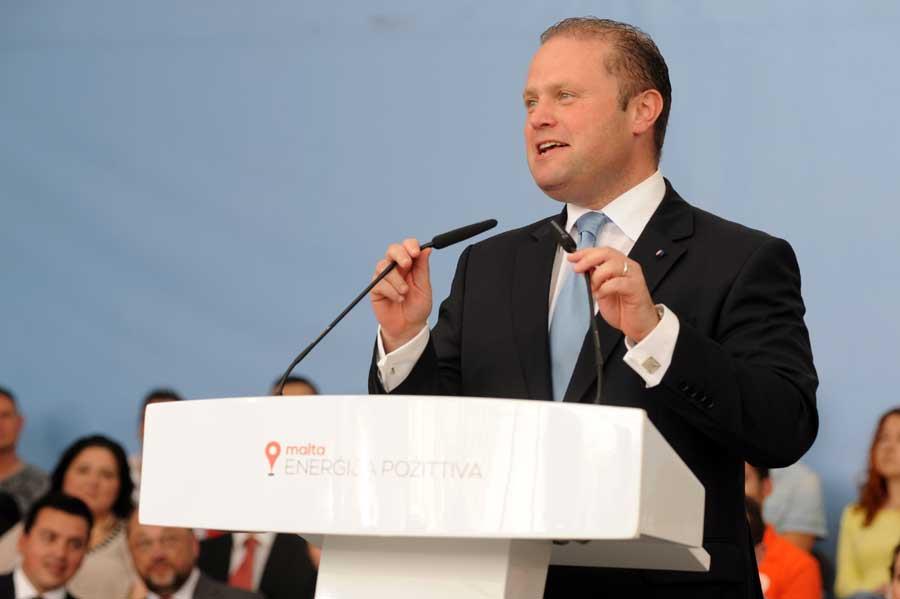The hunter’s lobby, FKNK stormed out of an Ornis Committee meeting on Tuesday following Birdlife CEO Mark Sultana’s call for a vote proposing that hunting and trapping should be prohibited at Qawra Point. The proposal was supported by the Wild Bird Regulation Unit, the government’s hunting regulatory agency.
FKNK secretary-general Daniel Xriha confirmed in statement that the representative refused to vote as a sign of protest saying that “The Ornis chairman made this proposal, without any valid or justified reason, and was immediately supported by the WBRU .The ban of hunting from Qawra Point comes in the wake of a similar ban on the land known as Tas-Safra, a decision that was taken without any consultation and that was not even discussed by the Ornis Committee.”
Mr Sultana told The Malta Independent that he proposed the vote following reports of numerous illegal hunting and trapping activities taking place in the area due the fact that enforcement is very difficult to impose in the area.
He also said that the activity also endangers people and birds alike since a number of reports have indicated that hunters shot birds which float on the surface of the water. The area sees a number of divers go to the area for training courses.
This rupture within the Ornis Committe comes immediately after four eagles had been shot between the 1st and 2nd of November during their migration over Malta, bringing up the total of protected birds shot (recorded by Birdlife Malta) up to 52.

Questioned on why Birdlife Malta was yet to make a formal proposal on the suspension of the autumn hunting season whilst simultaneously campaigning for its suspension, Mr Sultana (above) admitted that this seemed odd but insisted that this was due the fact that Birdlife’s vote was practically negligible and frustrated the organisation to a point that it always felt like it would be in a “losing battle” in the voting process.
The votes are made up as follows:
The Chairman, Profs. Mark Anthony Falzon, has one vote. A representative of Environment Resource Authority, Stephen Saliba, also has one vote.
Three independent persons, all appointed by the ministry, have three votes. Birdlife has one vote. FKNK has one vote.
Mr Sultana has claimed that the three independent persons, Marco Falzon, Emeline Fenech and Guido Baldacchino truly act as government representatives. He also extended this sentiment to the votes cast by the Chairman and the ERA, saying that these people all act in the government’s interests.
Mr Sultana previously said that the government is not interested in closing a hunting season so close to an election, since it would anger a large electoral base.
However, Mr Sultana maintained that the duty to suspend the hunting season does not fall squarely on the shoulders of the Ornis committee, and called on the government to take these decisions, going as far to say that the prime minister and relevant ministries should be responsible for taking such tough decisions.

In fact, Prime Minister Joseph Muscat has twice suspended the hunting season without any recommendation of the Ornis committee, first in September 2014, after five protected birds had been gunned down. He then suspended the season in April 2015, after a protected bird of prey was shot and fell into the football pitch of a school in Cottonera.
Speaking on the incident, Dr Muscat had said that "despite sharp decline in illegalities, today's hunting incident is inexcusable. I have decided to immediately close down the season."
Mr Sultana then said that the organisation’s current strategy is to increase enforcement, the lack of which, he claims, is the reason behind the numerous illegalities that have taken place over this hunting season, saying that “hunters do not commit illegalities for ethical reasons, rather because of fear of getting caught”.
In fact, the Committee against Bird Slaughter have long said that the lack of enforcement in Gozo has led to the area becoming a haven for illegal hunting and trapping activities, with the local police force taking over the duties instead of the designated authority, the Administrative Law Enforcement.
The issue surrounding the lack of enforcement was on the agenda of the Ornis Committee meeting on 5th October. In the meeting the Wild Birds Regulation Unit claimed that fully operational enforcement began late this season due to raptors migrating earlier than usual. This, Birdlife claims, is simply not true, pointing towards the organisation’s multiple warnings regarding this early migration pattern. Questions still remain why enforcement is not fully operational on the day the season opens regardless of migratory patterns.
That being said, since the meeting another 21 protected birds were shot, according to Birdlife records, making up for nearly half the amount of the total killings that took place so far (52).
Replying to questions put forward by The Malta Independent a spokesperson for the Ministry for Sustainable Development, the Environment and Climate Change said that the number quoted by BirdLife was actually much less.
The same spokesperson then refused to comment on whether or not the ministry would intervene, pointing to the decline in numbers experienced in previous seasons.
The spokesperson did confirm that all reports regarding the shooting of the four eagles “ were duly investigated and as a result one suspect has been apprehended and placed in police custody, while a number of other individuals are also being probed in connection with these incidents. Investigations are ongoing.”
The Office of the Prime Minister and the Ministry or Home Affairs and National Security have not yet responded to questions put forward by The Malta Independent.